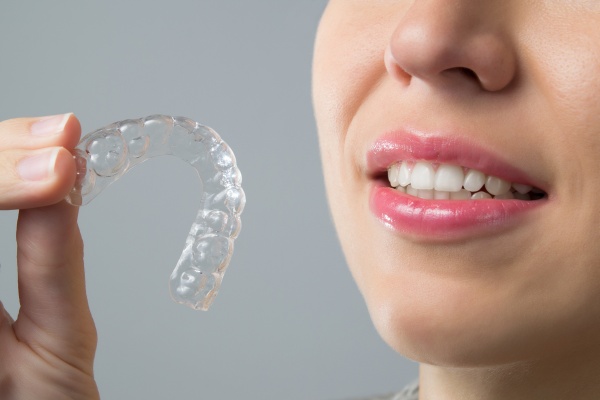How an Invisalign® Dentist Can Help Fix Misaligned Teeth

Dental technology has created new treatment strategies for individuals with crooked teeth, such as Invisalign. This clear, removable tooth aligner has become a popular alternative to traditional metal braces for many people who want to repair their smiles and correct chewing and speaking problems due to misaligned teeth. Working with a dentist that is experienced with this alignment system can be helpful when it comes to knowing what to expect before and during treatment.
The benefits of working with an Invisalign dentist
Individuals who want to correct misaligned teeth will likely have questions about the Invisalign system and how it works to close gaps and fix overbites. Dental professionals who have been working with the aligner and have experience with all the benefits and possible drawbacks can give patients peace of mind, especially if some individuals are not certain whether the aligner might repair the following problems completely:
- Large tooth gaps
- Extremely crooked teeth
- Deep overbite
Initial consultations with an Invisalign dentist may also help prospective clients understand other factors in using the aligner, such as cost and insurance options.
In-depth examinations can avoid fitting problems later
Invisalign is made of clear plastic and works by shifting misaligned teeth into proper place over a span of several months. Some individuals may only wear the aligner set for six or seven months, while others may need to wear it much longer. A dentist who works with this device can prevent future fitting problems with in-depth oral exams, X-rays and other procedures that ensure a proper and comfortable fit.
If X-rays are necessary before the unit is made, patients will likely be informed as soon as possible. Depending on the condition of an individual patient’s teeth, a dental team might discuss any X-ray results and whether any existing oral problems may disrupt the proper fit of Invisalign.
A more complete explanation of oral issues
Patients who want to correct tooth gaps, an overbite or underbite may not fully understand how these problems can affect oral health. For example, gaps can increase the risk of gingivitis, or infection of the gums, because food can become trapped between the teeth and gums with more ease. Overbites can affect speech, the ability to bite into crunchy or hard foods and cause uneven tooth wear. Learning why it is important to correct these issues with Invisalign can help patients considering the aligner feel more confident about their reasons for wearing it.
Invisalign dentists provide complete usage and aftercare support
Once the aligner has been molded to a patient’s individual fit, it can be worn throughout the day without the discomfort that metal braces can cause. However, proper usage and aftercare can be important to what kind of success is experienced. Invisalign dentists can help patients with any fitting problems that might occur and offer tips and advice for wearing the aligner comfortably and when to take it out.
Conclusion
Correcting dental issues such as teeth gaps, overbites and underbites can be achieved with Invisalign. Working with a dentist that is experienced with the aligner and its many uses can help you feel more confident about whether it is the best choice for your oral and emotional well-being.
Are you considering Invisalign in the Visalia area? Get more information at https://www.dentistofvisalia.com.
Check out what others are saying about our services on Yelp: Read our Yelp reviews.
Related Posts
You may need a type of dental restoration at some point in your life. There are many types of treatments available. Knowing how to select each one can give you the results that you need. Here are some tips on how to choose the right type of dental restoration procedure that will fit your dental…
Many people underestimate the importance of regular visits with a general dentist. They assume that daily brushing and flossing are enough. While at-home care is crucial, routine dental checkups ensure long-term dental health and prevent oral health complications.A general dentist functions much like a primary care provider for a person's mouth, serving as the first…
A strong and stable dental restoration can replace your missing tooth. Many people suffer from tooth loss. Using removable dentures is a way to fill the dental space. This can prevent many dental issues from developing. Here are the dental restoration options available for your missing tooth.The dentist will assess the patient’s mouth and see…
A root canal removes the infected pulp, then cleans and seals the tooth. Many patients may be unsure if there is anything else they need to do after the root canal. The answer is yes; they will need a dental restoration to restore the tooth's functionality. Let us dive into why leaving a treated tooth…
